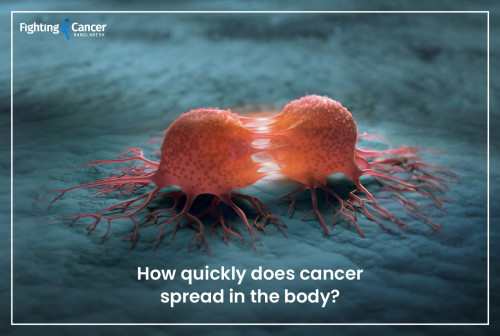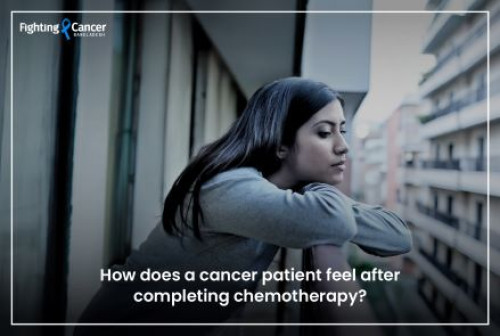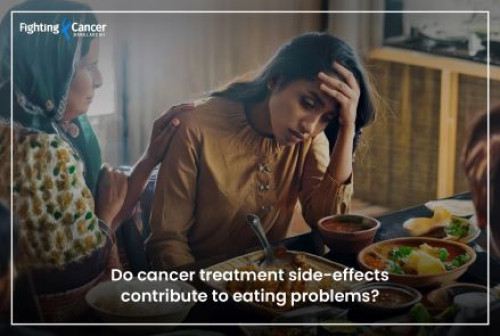 Head and neck cancers are the eighth most common cancers in the world. Head and neck cancers are more common in individuals over 40 years of age. Men are at a higher risk of developing head and neck cancer due to their higher rates of smoking and drinking.Head and neck cancers occur in different parts of the head or neck, including the mouth, throat, nasal cavity, sinuses, salivary glands, and lymph nodes.The use of tobacco is highly responsible for causing head and neck cancer. The tobacco prod...
Learn More
Head and neck cancers are the eighth most common cancers in the world. Head and neck cancers are more common in individuals over 40 years of age. Men are at a higher risk of developing head and neck cancer due to their higher rates of smoking and drinking.Head and neck cancers occur in different parts of the head or neck, including the mouth, throat, nasal cavity, sinuses, salivary glands, and lymph nodes.The use of tobacco is highly responsible for causing head and neck cancer. The tobacco prod...
Learn More
.jpg) Today, we will learn about one of the most aggressive and challenging types of cancer. Glioblastoma is a type of brain cancer widely known due to the unfortunate deaths of public figures like U.S. Senators John McCain and Ted Kennedy, as well as Beau Biden, the son of President Joe Biden.
Since 2019, the third Wednesday in July has been observed as Glioblastoma Awareness Day. Glioblastoma originates in the glial cells of the brain and grows rapidly with a high tendency to spread, making i...
Learn More
Today, we will learn about one of the most aggressive and challenging types of cancer. Glioblastoma is a type of brain cancer widely known due to the unfortunate deaths of public figures like U.S. Senators John McCain and Ted Kennedy, as well as Beau Biden, the son of President Joe Biden.
Since 2019, the third Wednesday in July has been observed as Glioblastoma Awareness Day. Glioblastoma originates in the glial cells of the brain and grows rapidly with a high tendency to spread, making i...
Learn More
 Cancer is a complex group of diseases characterized by uncontrolled cell growth due to genetic changes.
Each type of cancer behaves differently, with some progressing rapidly and spreading aggressively, while others have a slower growth rate. Factors such as the cancer's stage and grade play a crucial role in determining its progression.
Cancer is broadly categorized into-
Liquid cancers, which include blood cancers like leukemia, lymphoma, and multiple myeloma.
Solid tumor cancers...
Learn More
Cancer is a complex group of diseases characterized by uncontrolled cell growth due to genetic changes.
Each type of cancer behaves differently, with some progressing rapidly and spreading aggressively, while others have a slower growth rate. Factors such as the cancer's stage and grade play a crucial role in determining its progression.
Cancer is broadly categorized into-
Liquid cancers, which include blood cancers like leukemia, lymphoma, and multiple myeloma.
Solid tumor cancers...
Learn More
 Chemotherapy is a well-known and frequently used way to treat cancer. Along with physical recovery, patients undergo some side effects. Not all patients experience the same side effects or severity. They undergo and respond in different ways.Common side effects are –
Hair loss (not only from the scalp but also from the eyebrows and other relevant parts of the body)
Low Blood Cell Counts
Damage in nerve
Nausea
Vomiting
Fatigue
Loss of appetite
Mouth sores (difficulty in swallo...
Learn More
Chemotherapy is a well-known and frequently used way to treat cancer. Along with physical recovery, patients undergo some side effects. Not all patients experience the same side effects or severity. They undergo and respond in different ways.Common side effects are –
Hair loss (not only from the scalp but also from the eyebrows and other relevant parts of the body)
Low Blood Cell Counts
Damage in nerve
Nausea
Vomiting
Fatigue
Loss of appetite
Mouth sores (difficulty in swallo...
Learn More
 If we ask, what is the purpose of cancer treatment? The answer is very simple-cancer therapies are intended to shrink or kill cancer cells, thus ensuring a cure of cancer.
But there is an unavoidable issue, and that is these treatments damage some healthy cells during the treatment. These damages cause some side effects, like eating problems.
It’s common that, due to the stress of cancer and treatment, you may feel nausea and have poor or loss of appetite. But when you know that "it&rsqu...
Learn More
If we ask, what is the purpose of cancer treatment? The answer is very simple-cancer therapies are intended to shrink or kill cancer cells, thus ensuring a cure of cancer.
But there is an unavoidable issue, and that is these treatments damage some healthy cells during the treatment. These damages cause some side effects, like eating problems.
It’s common that, due to the stress of cancer and treatment, you may feel nausea and have poor or loss of appetite. But when you know that "it&rsqu...
Learn More